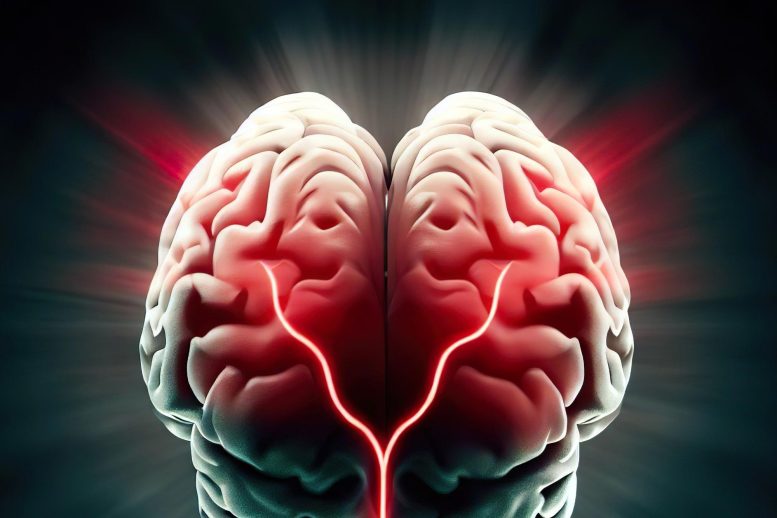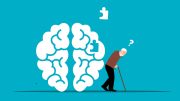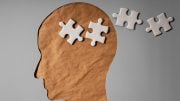
A study conducted by Johns Hopkins Medicine has discovered a link between heart attacks and accelerated cognitive decline. Analyzing data from adults who experienced their first heart attack, the researchers found that while the event did not cause an immediate decline in cognition, it did significantly speed up cognitive decline in the following years, equivalent to about six to 13 years of cognitive aging.
Research by Johns Hopkins Medicine, published in JAMA Neurology, shows a link between heart attacks and faster cognitive decline over the years following the event. Despite no immediate cognitive decline after a heart attack, the event was found to speed up cognitive aging by six to 13 years. The study highlights the importance of managing vascular risk factors to maintain brain health.
In a recent study, a Johns Hopkins Medicine researcher and collaborators analyzed data on adults to determine if there is a link between having a heart attack and cognitive decline. The new findings, published May 30, 2023 in JAMA Neurology, showed that having a heart attack, among those who had never had one before, was not associated with a sudden decline in cognition. But, for those who had a heart attack versus those who did not, there was a significantly faster decline in cognition over the years following the heart attack. The decline in global cognition after a heart attack was equivalent to about six to 13 years of cognitive aging.
A heart attack, or myocardial infarction, is a medical emergency in which the blood supply to the heart is suddenly and severely reduced or cut off, causing the muscle to die from a lack of oxygen. According to the Centers for Disease Control and Prevention, every year about 805,000 people in the United States have a heart attack. Of these, 605,000 are a first heart attack, and 200,000 happen to people who have already had a heart attack.
“Due to the fact that many people are at risk for having a heart attack, we hope that the results of our study will serve as a wake-up call for people to control vascular risk factors like high blood pressure and elevated cholesterol as soon as they can since we have shown that having a heart attack increases your risk of decreased cognition and memory later on in life,” says Michelle Johansen, M.D., Ph.D., an associate professor of neurology at the Johns Hopkins University School of Medicine.
In a pooled analysis of six different large studies of adults between 1971 and 2019, researchers determined whether people who have had heart attacks showed changes in cognition compared with people similar to them in all respects except they had not had a heart attack. The researchers used a point system to measure participants’ global or overall cognition over time, as well as memory and executive functioning — or how well people make complex cognitive decisions.
For those who suffered a heart attack, while the researchers did not find significant cognitive decline immediately after their first heart attack, the participants’ cognitive tests showed a decline over the years following the event. The scores on several different cognitive tests were combined to represent one cognitive domain. A decrease in points indicated a decline in that cognitive domain.
The study sample comprised 30,465 people who had not experienced a heart attack or stroke and did not have dementia at the time of the first cognitive assessment; 29% of the individuals were Black, 8% were Hispanic and 56% were women. Of the overall sample, 1,033 individuals went on to have at least one heart attack, and out of that, 137 had two heart attacks. Individuals who experienced heart attacks were more likely to be older and male.
Johansen says the next steps are to look at other aspects of heart health and how they may affect brain health.
“We have shown that preventing heart attacks may be one strategy to preserve brain health in older adults,” Johansen says. “Now we need to determine what specifically is causing the cognitive decline over time.”
Reference: “Association Between Acute Myocardial Infarction and Cognition” by Michelle C. Johansen, MD, PhD; Wen Ye, PhD; Alden Gross, PhD; Rebecca F. Gottesman, MD, PhD; Dehua Han, MPH; Rachael Whitney, PhD; Emily M. Briceño, PhD; Bruno J. Giordani, PhD; Supriya Shore, MD, MS; Mitchell S. V. Elkind, MD, MS; Jennifer J. Manly, PhD; Ralph L. Sacco, MD, MS; Alison Fohner, PhD; Michael Griswold, PhD; Bruce M. Psaty, MD, PhD; Stephen Sidney, MD, MPH; Jeremy Sussman, MD, MS; Kristine Yaffe, MD; Andrew E. Moran, MD, MPH; Susan Heckbert, MD, PhD; Timothy M. Hughes, MPH, PhD; Andrzej Galecki, MD, PhD; Deborah A. Levine, MD, MPH, 30 May 2023 , JAMA Neurology.
DOI: 10.1001/jamaneurol.2023.1331
Other authors include Wen Ye, Ph.D., Alden Gross, Ph.D., Rebecca F. Gottesman, M.D., Ph.D., Dehua Han, M.P.H., Rachael Whitney, Ph.D., Emily M. Briceño Ph.D., Bruno J. Giordani, Ph.D., Supriya Shore, M.D., M.S, Mitchell S. V. Elkind, M.D., M.S., Jennifer J. Manly, Ph.D., Ralph L. Sacco, M.D., M.S., Alison Fohner, Ph.D., Michael Griswold, Ph.D., Bruce M. Psaty, M.D., Ph.D., Stephen Sidney, M.D., M.P.H., Jeremy Sussman, M.D., M.S., Kristine Yaffe, M.D., Andrew E. Moran, M.D., M.P.H., Susan Heckbert, M.D., Ph.D., Timothy M. Hughes, Ph.D., Andrzej Galecki, M.D., Ph.D., and Deborah A. Levine, M.D., M.P.H.
This research was supported by the National Institute of Neurological Disorders and Stroke (R01 NS102715; Principal Investigator, Deborah A. Levine, MD, MPH, University of Michigan), the National Institutes of Health, and the Department of Health and Human Services.







Be the first to comment on "Johns Hopkins Research Links Heart Attacks With Faster Cognitive Decline"